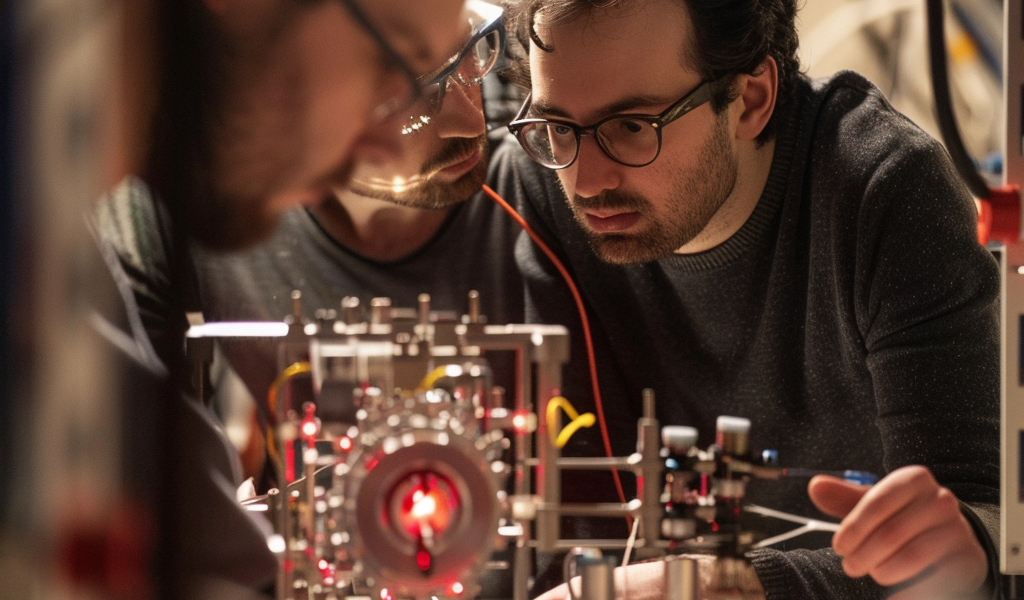Researchers at the University of Massachusetts Amherst have made a significant breakthrough in the field of quantum computing by developing a new device known as a microwave circulator. This device enables precise tuning of the degree of nonreciprocity between a qubit, the basic unit of quantum computing, and a microwave-resonant cavity.
The ability to adjust the degree of nonreciprocity is crucial for quantum information processing. The team, in collaboration with researchers from the University of Chicago, has introduced a comprehensive and versatile theory that simplifies and enhances previous understandings of nonreciprocity. This new model will benefit future research in similar areas, even when using different components and platforms.
The research findings have been published in the prestigious journal, Science Advances.
Quantum computing operates on a fundamentally different principle compared to traditional bit-based computing. While a bit typically represents either a 0 or a 1, quantum computing utilizes ‘qubits’ that exist in a state of ‘quantum superposition,’ allowing them to be both 0 and 1 simultaneously. This unique property, governed by quantum mechanics, enhances the computational power of quantum computers significantly.
Moreover, the concept of ‘nonreciprocity’ opens up new possibilities for quantum computing to harness the full potential of the quantum realm. In simple terms, nonreciprocity involves one party sharing slightly less information than the other in a conversation, which is advantageous in quantum computing scenarios.
Sean van Geldern, a physics graduate student at UMass Amherst and one of the authors of the study, explains, ‘Total reciprocity in a conversation means both parties share an equal amount of information. Nonreciprocity, on the other hand, implies one party shares less information. This asymmetry is beneficial in quantum computing.’
Chen Wang, the senior author of the study and an assistant professor of physics at UMass Amherst, highlights the importance of nonreciprocity in quantum computing, stating, ‘There are numerous computing scenarios where creating an information imbalance is advantageous, and nonreciprocity allows us to achieve this.’





